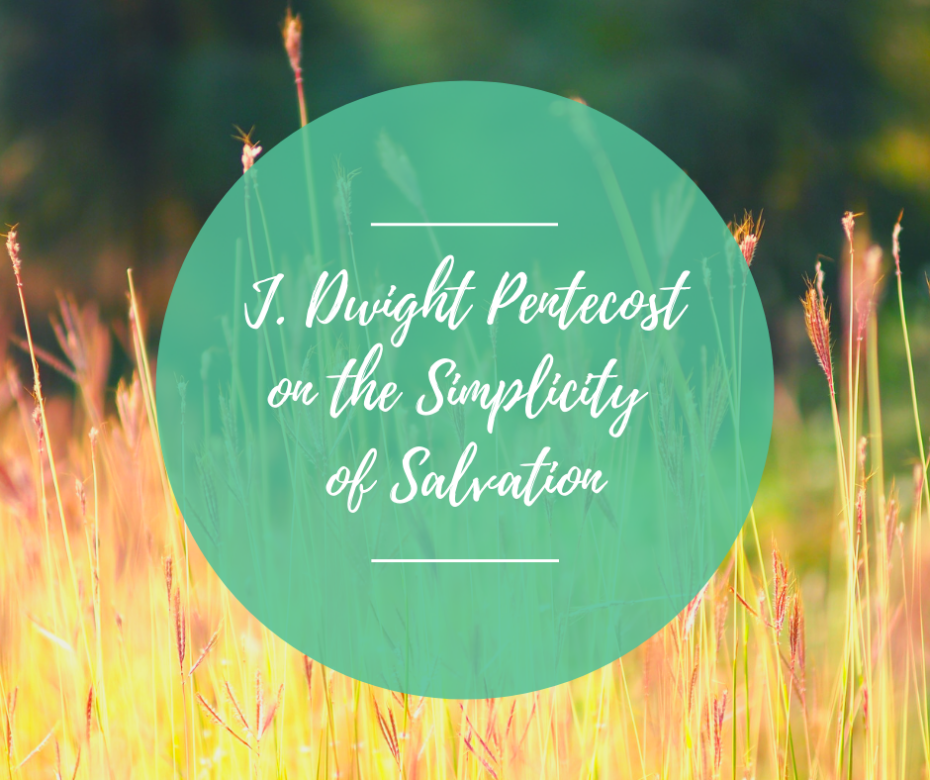I’m writing a journal article on what Dallas Theological Seminary professors taught about salvation to the general public, from 1965-1995. I’m looking at books by DTS professors, aimed at a general reading audience. I want to know whether they leaned Free Grace or Lordship. (Be sure to subscribe to the journal to get these longer articles.)
The first book I’m examining is J. Dwight Pentecost’s Things Which Become Sound Doctrine: Doctrinal Studies of Fourteen Crucial Words of Faith. Here are several helpful quotes:
“Sinners, confronted with their need of salvation, frequently stumble over the very simplicity of the salvation which God offers” (p. 61).
“It is of faith, that it might be of grace, to the end that it might be sure. If God covenanted to do ninety-nine percent of the work of salvation if you did one percent, you would have no certainty that you had accomplished your part of the bargain so that God could do His ninety-nine percent. You would live out your days in dread and fear because you would have no assurance that you had lived up to your part of the bargain. But, in order that salvation might be sure, God says it must be by grace. It is no wonder we delight to sing of the grace of God that brought salvation, for it is a gracious salvation that gives us certainty, security, and assurance” (p. 27).
“That is why some will teach that salvation is by faith and good works; or, salvation is by faith and baptism; or, salvation is by faith plus church membership; or, salvation is by faith plus repentance. These are all attempts to darken the mind of the man who needs to be saved concerning the central issue and the basic plan of redemption” (p. 61).
“There are approximately 150 passages in the New Testament that tell us that salvation is by faith alone; that salvation is the gift of God to one who will accept Jesus Christ as his personal Savior…Repentance is not a prerequisite to salvation; for if repentance is required, salvation is based, at least in part, upon works” (p. 70).
Aside from some minor points of confusion owing to Pentecost taking a hard “change of mind” view of repentance, I would say that Pentecost, or at least this book by Pentecost, would definitely qualify as consistent with Free Grace theology.


